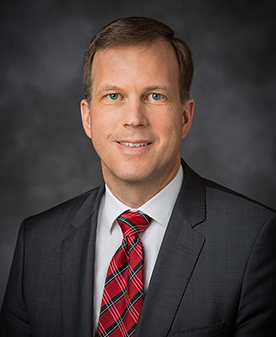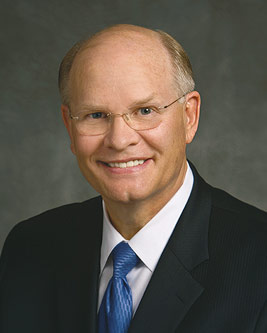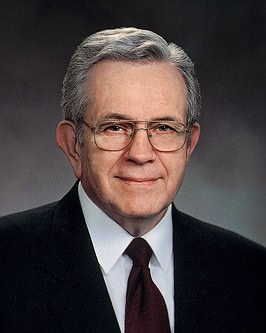Repentance
SEARCH BY TITLE
 “According to the Desire of [Our] Hearts”
“According to the Desire of [Our] Hearts”
Like it or not, therefore, reality requires that we acknowledge our responsibility for our desires. Brothers and sisters, which do we really desire, God’s plans for us or Satan’s? Whenever spiritually significant things are under way, righteous desires are present. Meek desire characterized those awaiting baptism at the waters of Mormon. With their baptismal commitments spelled out specifically, “they … exclaimed: This is the desire of our hearts”. The Nephite multitude, enraptured by the presence of the resurrected Jesus, knelt in humble and intensive prayer, yet “they did not multiply many words, for it was given unto them what they should pray, and they were filled with desire” No wonder desires also determine the gradations in outcomes, including why “many are called, but few are chosen” It is up to us. God will facilitate, but He will not force. Righteous desires need to be relentless, therefore, because, said President Brigham Young, “the men and women, who desire to obtain seats in the celestial kingdom, will find that they must battle every day”. Therefore, true Christian soldiers are more than weekend warriors.
 Approaching the Throne of God with Confidence
Approaching the Throne of God with Confidence
Become really, really good at repenting thoroughly and quickly. Because the Atonement of Jesus Christ is very practical, you should apply it generously 24/7, for it never runs out. Embrace the Atonement of Jesus Christ and repentance as things that are to be welcomed and applied daily according to the Great Physician’s orders. Establish an attitude of ongoing, happy, joyful repentance by making it your lifestyle of choice. In doing so, beware of the temptation to procrastinate, and don’t expect the world to cheer you on. Keeping your eyes on the Savior, care more about what He thinks of you, and let the consequences follow. Spiritual confidence increases when you voluntarily and joyfully repent of sins, both small and great, in real time by applying the Atonement of Jesus Christ. . . acknowledge and face your weaknesses, but don’t be immobilized by them, because some of them will be your companions until you depart this earth life. No matter what your current status, the very moment you voluntarily choose honest, joyful, daily repentance by striving to simply do and be your very best, the Savior’s Atonement envelops and follows you, as it were, wherever you go. Living in this manner, you can truly “always retain a remission of your sins” every hour of every day, every second of every minute, and thus be fully clean and acceptable before God all the time.
 Broken Things to Mend
Broken Things to Mend
So how does one “come unto Christ” in response to this constant invitation? The scriptures give scores of examples and avenues. You are well acquainted with the most basic ones. The easiest and the earliest comes simply with the desire of our heart, the most basic form of faith that we know. “If ye can no more than desire to believe,” Alma says, exercising just “a particle of faith,” giving even a small place for the promises of God to find a home—that is enough to begin.7 Just believing, just having a “molecule” of faith—simply hoping for things which are not yet seen in our lives, but which are nevertheless truly there to be bestowed8—that simple step, when focused on the Lord Jesus Christ, has ever been and always will be the first principle of His eternal gospel, the first step out of despair. Second, we must change anything we can change that may be part of the problem. In short we must repent, perhaps the most hopeful and encouraging word in the Christian vocabulary. We thank our Father in Heaven we are allowed to change, we thank Jesus we can change, and ultimately we do so only with Their divine assistance. Certainly not everything we struggle with is a result of our actions. Often it is the result of the actions of others or just the mortal events of life. But anything we can change we should change, and we must forgive the rest. In this way our access to the Savior’s Atonement becomes as unimpeded as we, with our imperfections, can make it. He will take it from there.
 Can Ye Feel So Now?
Can Ye Feel So Now?
Many who are in a spiritual drought and lack commitment have not necessarily been involved in major sins or transgressions, but they have made unwise choices. Some are casual in their observance of sacred covenants. Others spend most of their time giving first-class devotion to lesser causes. Some allow intense cultural or political views to weaken their allegiance to the gospel of Jesus Christ. Some have immersed themselves in Internet materials that magnify, exaggerate, and, in some cases, invent shortcomings of early Church leaders. Then they draw incorrect conclusions that can affect testimony. Any who have made these choices can repent and be spiritually renewed. Immersion in the scriptures is essential for spiritual nourishment. The word of God inspires commitment and acts as a healing balm for hurt feelings, anger, or disillusionment. When our commitment is diminished for any reason, part of the solution is repentance. Commitment and repentance are closely intertwined. C. S. Lewis, the striving, pragmatic Christian writer, poignantly framed the issue. He asserted that Christianity tells people to repent and promises them forgiveness; but until people know and feel they need forgiveness, Christianity does not speak to them. He stated, “When you know you are sick, you will listen to the doctor.”The Prophet Joseph pointed out that before your baptism, you could be on neutral ground between good and evil. But “when you joined this Church you enlisted to serve God. When you did that you left the neutral ground, and you never can [go] back.” His counsel was that we must never forsake the Master. Alma emphasizes that through the Atonement of Jesus Christ, “the arms of mercy are extended” to those who repent. He then asks penetrating and ultimate questions, such as: Are we prepared to meet God? Are we keeping ourselves blameless? We should all contemplate these questions. Alma’s own experience in failing to follow his faithful father and then coming to a dramatic understanding of how much he needed forgiveness and what it meant to sing the song of redeeming love is powerful and compelling.
![ArtBook__134_134__EzraTaftBenson____[1]](http://ldsminds.com/wp-content/uploads/2013/10/ArtBook__134_134__EzraTaftBenson____1-e1403389404661.jpg) Cleansing the Inner Vessel
Cleansing the Inner Vessel
Pride is characterized by “What do I want out of life?” rather than by “What would God have me do with my life?” It is self-will as opposed to God’s will. It is the fear of man over the fear of God. Humility responds to God’s will—to the fear of His judgments and the needs of those around us. To the proud, the applause of the world rings in their ears; to the humble, the applause of heaven warms their hearts. Someone has said, “Pride gets no pleasure out of having something, only out of having more of it than the next man.” Of one brother, the Lord said, “I, the Lord, am not well pleased with him, for he seeketh to excel, and he is not sufficiently meek before me.” The two groups in the Book of Mormon that seemed to have the greatest difficulty with pride are the “learned, and the rich.” But the word of God can pull down pride. With pride, there are many curses. With humility, there come many blessings. For example, “Be thou humble; and the Lord thy God shall lead thee by the hand, and give thee answer to thy prayers.” The humble will “be made strong, and blessed from on high, and receive knowledge.” The Lord is “merciful unto those who confess their sins with humble hearts.” Humility can turn away God’s anger. My beloved brethren and sisters, as we cleanse the inner vessel, there will have to be changes made in our own personal lives, in our families, and in the Church. The proud do not change to improve, but defend their position by rationalizing. Repentance means change, and it takes a humble person to change. But we can do it. We have made some wonderful strides in the past. We will be lengthening our stride in the future. To do so, we must first cleanse the inner vessel by awaking and arising, being morally clean, using the Book of Mormon in a manner so that God will lift the condemnation, and finally conquering pride by humbling ourselves.
 “Come unto Me with Full Purpose of Heart, and I Shall Heal You”
“Come unto Me with Full Purpose of Heart, and I Shall Heal You”
The Anti-Nephi-Lehies in the Book of Mormon laid down their weapons of war and buried them deep in the earth, covenanting never again to take up arms against their brethren. But they did more than that. “They became a righteous people” because “they did lay down the weapons of their rebellion, that they did not fight against God any more.” Their conversion was so complete and so profound that they “never did fall away.” But before their conversion, remember their state: they were living in what the scriptures call “open rebellion against God.” Their rebellious hearts sentenced them to live “in a state contrary to the nature of happiness” because they had “gone contrary to the nature of God.” When they laid down their weapons of rebellion, they qualified themselves for the Lord’s healing and peace, and so can we. The Savior assures, “If they harden not their hearts, and stiffen not their necks against me, they shall be converted, and I will heal them.” You and I can accept His invitation to “return and repent, and come unto me with full purpose of heart, and I shall heal [you].” Contrast this miraculous healing with what happens “when we undertake to cover our sins, or to gratify our pride [or] our vain ambition. … The heavens withdraw themselves; the Spirit of the Lord is grieved;” and we are left alone “to kick against the pricks … and to fight against God.” Brethren, we find healing and relief only when we bring ourselves to the feet of the Great Physician, our Savior, Jesus Christ. We must lay down our weapons of rebellion (and we each know what they are). We must lay down our sin, vanity, and pride. We must give up our desires to follow the world and to be respected and lauded by the world. We must cease fighting against God and instead give our whole hearts to Him, holding nothing back. Then He can heal us. Then He can cleanse us from the venomous sting of sin.
 Dare to Stand Alone
Dare to Stand Alone
If any of you has stumbled in your journey, I want you to understand without any question whatsoever that there is a way back. The process is called repentance. Our Savior gave His life to provide you and me that blessed gift. Despite the fact that the repentance path is not easy, the promises are real. We have been told: “Though your sins be as scarlet, they shall be as white as snow.” “And I will remember [them] no more.” What a statement. What a blessing. What a promise. There may be those of you who are thinking to yourselves, “Well, I’m not living all the commandments, and I’m not doing everything I should, and yet my life is going along just fine. I think I can have my cake and eat it too.” Brethren, I promise you that this will not work in the long run. Not too many months ago I received a letter from a man who once thought he could have it both ways. He has now repented and has brought his life into compliance with gospel principles and commandments. I want to share with you a paragraph from his letter, for it represents the reality of flawed thinking: “I have had to learn for myself (the hard way) that the Savior was absolutely correct when He said, ‘No man can serve two masters: for either he will hate the one, and love the other; or else he will hold to the one, and despise the other. Ye cannot serve God and mammon.’ I tried, about as hard as anyone ever has, to do both. In the end,” said he, “I had all of the emptiness, darkness, and loneliness that Satan provides to those who believe his deceptions, illusions, and lies.” In order for us to be strong and to withstand all the forces pulling us in the wrong direction or all the voices encouraging us to take the wrong path, we must have our own testimony.
 Flaxen Threads
Flaxen Threads
I would also suggest to you, in the spirit of helpfulness, that the process of repentance is the means of escape from the clutches of sin and is not unlike the process of cultivating a desirable habit. Permit me to make the comparison: Step one in habit formation, I said, was to define the habit. Equivalent action in repentance is recognition of error. Step two in habit formation is to bind yourself to action. This step is repentance is resolve to do better. Step three in habit formation is to put the new conduct into operation. In repenting, we reform our living pattern. Step four in habit formation is to bolster will or desire. In repenting, we reflect seriously upon the forgiving nature of God and Christ’s atonement. Step five in habit formation is do not look back. In repentance, we refrain from committing the error again. Step six in habit formation is to plunge wholeheartedly into the new conduct. This action in repentance is complete faith and reliance in the new direction one is taking. One Church leader describes repentance as the process whereby a mortal soul—unclean and stained with the guilt of sin—is enabled to cast off the burden of guilt, wash away the filth of iniquity, and become clean every whit, entirely free from the bondage of sin. Without the hopes and prospects embodied in the principle of repentance, it is doubtful that many of us would be able to retain our balance and sanity. We do err frequently; we do fall short of the mark; we often disappoint ourselves and those around us. If a means of escape and relief through repentance were not extended us, we would probably not be strong enough to cope with life. One sagging spirit, fettered by remorse for sin, cried out: I wish that there were some wonderful place Called the Land of Beginning Again, Where all our mistakes and all our heartaches And all of our poor selfish grief Could be dropped like a shabby old coat at the door, And never be put on again. How blessed we are to know that there is a “land of beginning again”! This land is the gospel of Jesus Christ, and the door to it is that blessed principle of repentance. When we apply this principle in the Lord’s way, cords and chains are removed, and we are freed from the enemies of our soul.
 Latter-day Saints Keep on Trying
Latter-day Saints Keep on Trying
My dear brothers and sisters, in December 2013 the world mourned the death of Nelson Mandela. After 27 years of imprisonment for his role in the antiapartheid struggle, Mandela was the first democratically elected president of South Africa. His forgiveness of those who had imprisoned him was remarkable. He received widespread acclaim and praise. Mandela frequently deflected accolades by saying, “I’m no saint—that is, unless you think a saint is a sinner who keeps on trying.” This statement—“a saint is a sinner who keeps on trying”—should reassure and encourage members of the Church. Although we are referred to as “Latter-day Saints,” we sometimes flinch at this reference. The term Saints is commonly used to designate those who have achieved an elevated state of holiness or even perfection. And we know perfectly well that we are not perfect. Our theology does teach us, though, that we may be perfected by repeatedly and iteratively “relying wholly upon” the doctrine of Christ: exercising faith in Him, repenting, partaking of the sacrament to renew the covenants and blessings of baptism, and receiving the Holy Ghost as a constant companion to a greater degree. As we do so, we become more like Christ and are able to endure to the end, with all that that entails. In less formal terms, God cares a lot more about who we are and who we are becoming than about who we once were. He cares that we keep on trying. The comedy As You Like It, written by the English playwright William Shakespeare, depicts a dramatic change in a character’s life. An older brother attempts to have his younger brother killed. Even knowing this, the younger brother saves his wicked brother from certain death. When the older brother learns of this undeserved compassion, he is totally and forever changed and has what he calls a “conversion.” Later several women approach the older brother and ask, “Was’t you that did so oft contrive to kill [your brother]?” The older brother answers, “’Twas I; but ’tis not I: I do not shame to tell you what I was, since my conversion so sweetly tastes, being the thing I am.” For us, because of God’s mercy and the Atonement of Jesus Christ, such a change is not just literary fiction.
 Making the Right Choices
Making the Right Choices
All of the sexual transgressions we have discussed require sincere repentance with the participation of the bishop. Should you have done any of this, repent now. It is wrong to violate these commandments of the Lord. It is worse to do nothing about it. Sin is like cancer in the body. It will never heal itself. It will become worse unless cured through repentance. Your parents can help strengthen you. Then you can become clean and pure by repentance under the guidance of the bishop. He may seem to be busy or unavailable. Tell him you are in trouble and need help. He will listen. youth in serious trouble said: “I have done things that I knew were bad. I have been taught they were ever since I can remember. I know repentance is a great gift; without it I would be lost. But I’m not ready to repent of my sins, yet I know when I am ready I can.” How tragic. The thought of intentionally committing serious sin now and repenting later is perilously wrong. Never do that. Many start that journey of intentional transgression and never make it back. Premeditated sin has greater penalties and is harder to overcome. If there is sin, repent now—while you can. I pray that as we have talked you have had feelings to do better. You hold the priesthood of God. That is a sacred responsibility, and also a singular privilege. You will be fortified in your determination to live righteously as you study the scriptures, especially the Book of Mormon. Listen to your parents, leaders, and the prophet we have sustained today. Have faith in the Savior. He will help you. Remember He said, “I, the Lord, am bound when ye do what I say; but when ye do not what I say, ye have no promise.” Please stay morally clean. The Lord will make that possible as you do your part with all your strength. Jesus Christ lives, and He loves you. He will help you as you do your part.
 The Meaning of Repentance
The Meaning of Repentance
Just what is repentance? Actually it is easier for me to tell you what repentance is not than to tell you what repentance is. My present assignment as a General Authority is to assist the First Presidency. I prepare information for them to use in considering applications to readmit transgressors into the Church and to restore priesthood and/or temple blessings. Many times a bishop will write: “I feel he has suffered enough!” But suffering is not repentance. Suffering comes from lack of complete repentance. A stake president will write: “I feel he has been punished enough!” But punishment is not repentance. Punishment follows disobedience and precedes repentance. A husband will write: “My wife has confessed everything!” But confession is not repentance. Confession is an admission of guilt that occurs as repentance begins. A wife will write: “My husband is filled with remorse!” But remorse is not repentance. Remorse and sorrow continue because a person has not yet fully repented. But if suffering, punishment, confession, remorse, and sorrow are not repentance, what is repentance? . . Throughout the Old Testament, a fundamental theme is forsaking or turning from evil and doing instead that which is noble and good. Not only must we change our ways; we must as well change our very thoughts which control our actions. Repentance is a turning back to God! . . Let us now turn to the New Testament which was written in Greek. How did those Greek writers translate the word “shube” into Greek and still retain its concept of repentance? They used the word “metaneoeo,” which is a compound word of two parts. The first part, “meta,” we use as a prefix in our English vocabulary. When we eat we convert food by a process of metabolism into fat, muscle, and connective tissue. When we see a crawling caterpillar stop, attach itself to a limb and spin a cocoon, the insect inside its silken case undergoes metamorphosis. It changes its form into a moth or a beautiful butterfly. The prefix “meta,” then, refers to change. . . Let me read again to you from Ezekiel 33, which outlines three main steps of repentance which include (1) commitment, (2) restitution, and (3) forsaking sin.
 Point Of Safe Return
Point Of Safe Return
We need a strong faith in Christ to be able to repent. Our faith has to include a “correct idea of [God’s] character, perfections, and attributes”. If we believe that God knows all things, is loving, and is merciful, we will be able to put our trust in Him for our salvation without wavering. Faith in Christ will change our thoughts, beliefs, and behaviors that are not in harmony with God’s will. True repentance brings us back to doing what is right. To truly repent we must recognize our sins and feel remorse, or godly sorrow, and confess those sins to God. If our sins are serious, we must also confess them to our authorized priesthood leader. We need to ask God for forgiveness and do all we can to correct whatever harm our actions may have caused. Repentance means a change of mind and heart—we stop doing things that are wrong, and we start doing things that are right. It brings us a fresh attitude toward God, oneself, and life in general. True repentance blesses our lives with the effects of the Atonement: we feel God’s forgiveness and His peace, and our guilt and sorrow are lifted away; we enjoy the influence of the Spirit in greater abundance; and we are better prepared to live with our Heavenly Father.
 “The Touch of the Master’s Hand”
“The Touch of the Master’s Hand”
We all make mistakes. Sometimes we harm ourselves and seriously injure others in ways that we alone cannot repair. We break things that we alone cannot fix. It is then in our nature to feel guilt and humiliation and suffering, which we alone cannot cure. That is when the healing power of the Atonement will help. The Lord said, “Behold, I, God, have suffered these things for all, that they might not suffer if they would repent.” If Christ had not made His Atonement, the penalties for mistakes would be added one on the other. Life would be hopeless. But He willingly sacrificed in order that we may be redeemed. And He said, “Behold, he who has repented of his sins, the same is forgiven, and I, the Lord, remember them no more.” Ezekiel said: “If the wicked restore the pledge, give again that he had robbed, walk in the statutes of life, without committing iniquity; he shall surely live, he shall not die. “None of his sins that he hath committed shall be mentioned unto him.” Think of that, not even mentioned! We can even “retain a remission of [our] sins.” Baptism by immersion is for the remission of our sins. That covenant can be renewed by partaking of the sacrament each week. The Atonement has practical, personal, everyday value; apply it in your life. It can be activated with so simple a beginning as prayer. You will not thereafter be free from trouble and mistakes but can erase the guilt through repentance and be at peace. I quoted the third article of faith. It has two parts: “We believe that through the Atonement of Christ, all mankind may be saved, [then the conditions] by obedience to the laws and ordinances of the Gospel.” Justice requires that there be a punishment. Guilt is not erased without pain. There are laws to obey and ordinances to receive, and there are penalties to pay. Physical pain requires treatment and a change in lifestyle. So it is with spiritual pain. There must be repentance and discipline, most of which is self-discipline. But to restore our innocence after serious transgressions, there must be confession to our bishop, who is the appointed judge.
 The Very Root of Christian Doctrine
The Very Root of Christian Doctrine
In a recent sacrament meeting I followed along as the speaker read a familiar passage of scripture. You know it: “Remember the worth of souls is great in the sight of God”. I cannot recall where the speaker then went with his remarks. Wherever it was, I did not follow, because my mind seized hold on an idea in the next verse that I had never noticed before. To prove the great worth of our souls, the Lord told us: For, behold, the Lord your Redeemer suffered death in the flesh; wherefore he suffered the pain of all men, that all men might repent and come unto him. His suffering proves His love, but it does more. It is the means He uses to get us to “repent and come unto him.” When we come to have some sense of what Christ has done for us—and, in particular, what He has suffered for us—our natural reaction as children of God is to want to show our gratitude and love by giving our lives to Him, by obeying Him. This verse is, in my opinion, the most succinct and profound description—from the Lord Himself—of how to get the gospel down into the hearts of you and me and those we serve. We should not use appeals to pride or even to a rational calculation of what is in one’s best interest: heaven or hell. The best way—the only way—to persuade people to repent and come unto Christ is to get them—to get us—to think about what He has done for us and especially about what He has suffered for us. That is how Christ does it. This is an insight from the Restoration that we can and must use in our homes, our meetings, and all of our teachings.
 Ye Must Be Born Again
Ye Must Be Born Again
Just as a cucumber is transformed into a pickle as it is immersed in and saturated with salt brine, so you and I are born again as we are absorbed by and in the gospel of Jesus Christ. As we honor and “observe the covenants” into which we have entered, as we “feast upon the words of Christ”, as we “pray unto the Father with all the energy of heart”, and as we “serve [God] with all [of our] heart, might, mind and strength”, then: “Because of the covenant which ye have made ye shall be called the children of Christ, his sons, and his daughters; for behold, this day he hath spiritually begotten you; for ye say that your hearts are changed through faith on his name; therefore, ye are born of him and have become his sons and his daughters”. The spiritual rebirth described in this verse typically does not occur quickly or all at once; it is an ongoing process—not a single event. Line upon line and precept upon precept, gradually and almost imperceptibly, our motives, our thoughts, our words, and our deeds become aligned with the will of God. This phase of the transformation process requires time, persistence, and patience. A cucumber only becomes a pickle through steady, sustained, and complete immersion in salt brine. Significantly, salt is the key ingredient in the recipe. Salt frequently is used in the scriptures as a symbol both of a covenant and of a covenant people. And just as salt is essential in transforming a cucumber into a pickle, so covenants are central to our spiritual rebirth. We begin the process of being born again through exercising faith in Christ, repenting of our sins, and being baptized by immersion for the remission of sins by one having priesthood authority. . . Total immersion in and saturation with the Savior’s gospel are essential steps in the process of being born again.
 You Can Do It Now!
You Can Do It Now!
Of all the principles taught by prophets over the centuries, one that has been emphasized over and over again is the hopeful and heartwarming message that mankind can repent, change course, and get back on the true path of discipleship. That does not mean that we should be comfortable with our weaknesses, mistakes, or sins. But there is an important difference between the sorrow for sin that leads to repentance and the sorrow that leads to despair. The Apostle Paul taught that “godly sorrow worketh repentance to salvation … but the sorrow of the world worketh death.” Godly sorrow inspires change and hope through the Atonement of Jesus Christ. Worldly sorrow pulls us down, extinguishes hope, and persuades us to give in to further temptation. Godly sorrow leads to conversion and a change of heart. It causes us to hate sin and love goodness. It encourages us to stand up and walk in the light of Christ’s love. True repentance is about transformation, not torture or torment. Yes, heartfelt regret and true remorse for disobedience are often painful and very important steps in the sacred process of repentance. But when guilt leads to self-loathing or prevents us from rising up again, it is impeding rather than promoting our repentance. Brethren, there is a better way. Let us rise up and become men of God. We have a champion, a Savior, who walked through the valley of the shadow of death on our behalf. He gave Himself as a ransom for our sins. No one has ever had greater love than this—Jesus Christ, the Lamb without blemish, willingly laid Himself on the altar of sacrifice and paid the price for our sins to “the uttermost farthing.” He took upon Himself our suffering. He took our burdens, our guilt upon His shoulders. My dear friends, when we decide to come to Him, when we take upon ourselves His name and boldly walk in the path of discipleship, then through the Atonement we are promised not only happiness and “peace in this world” but also “eternal life in the world to come.” When we make mistakes, when we sin and fall, let us think of what it means to truly repent. It means turning our heart and will to God and giving up sin. True heartfelt repentance brings with it the heavenly assurance that “we can do it now.”
 You Make a Difference
You Make a Difference
An inspiring lesson is learned from a “Viewpoint” article which appeared recently in the Church News section of the Deseret News. May I quote: “To some it may seem strange to see ships of many nations loading and unloading cargo along the docks at Portland, Oregon. That city is 100 miles from the ocean. Getting there involves a difficult, often turbulent passage over the bar guarding the Columbia River and a long trip up the Columbia and Willamette Rivers. “But ship captains like to tie up at Portland. They know that as their ships travel the seas, a curious salt water shellfish called a barnacle fastens itself to the hull and stays there for the rest of its life, surrounding itself with a rock-like shell. As more and more barnacles attach themselves, they increase the ship’s drag, slow its progress, decrease its efficiency. “Periodically, the ship must go into dry dock, where with great effort the barnacles are chiseled or scraped off. It’s a difficult, expensive process that ties up the ship for days. But not if the captain can get his ship to Portland. Barnacles can’t live in fresh water. There, in the sweet, fresh waters of the Willamette or Columbia, the barnacles loosen and fall away, and the ship returns to its task lightened and renewed. “Sins are like those barnacles. Hardly anyone goes through life without picking up some. They increase the drag, slow our progress, decrease our efficiency. Unrepented, building up one on another, they can eventually sink us. “In His infinite love and mercy, our Lord has provided a harbor where, through repentance, our barnacles fall away and are forgotten. With our souls lightened and renewed, we can go efficiently about our work and His”
